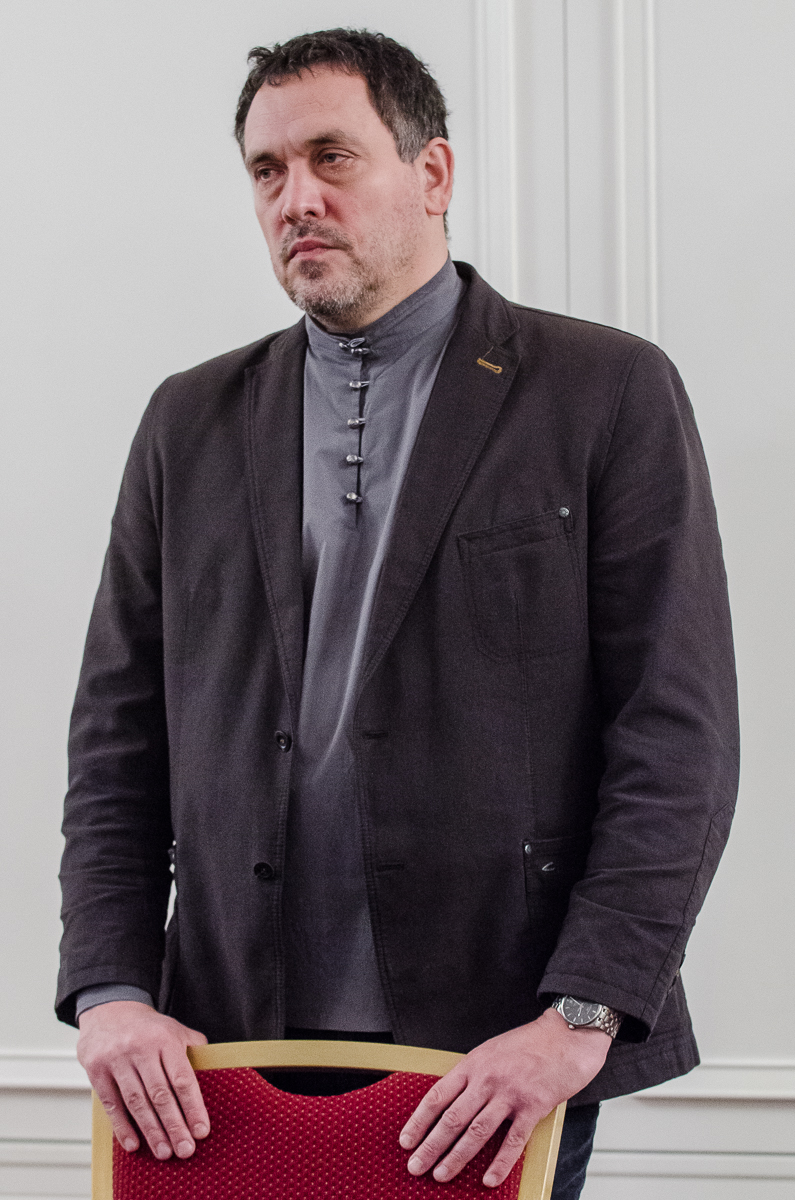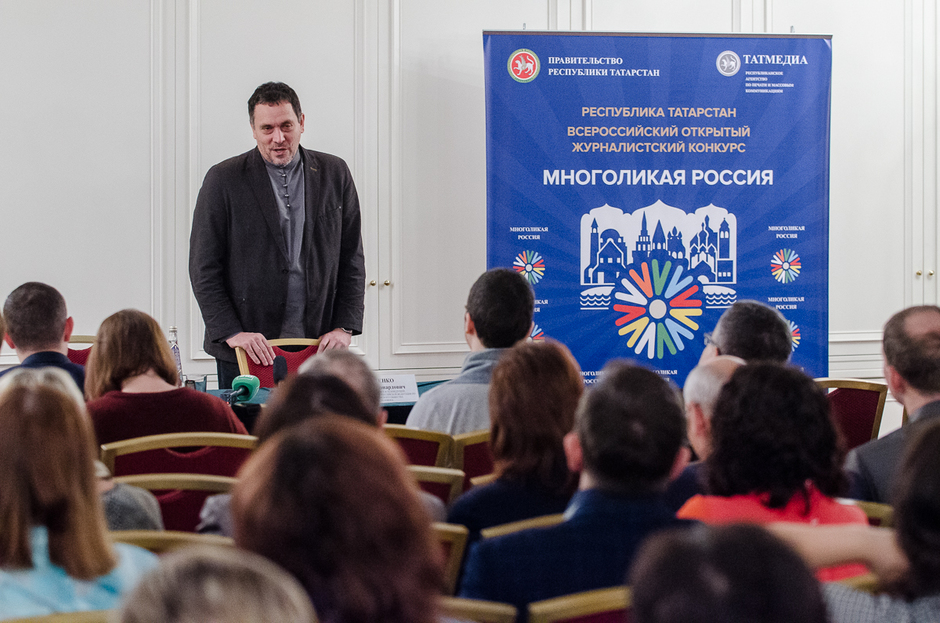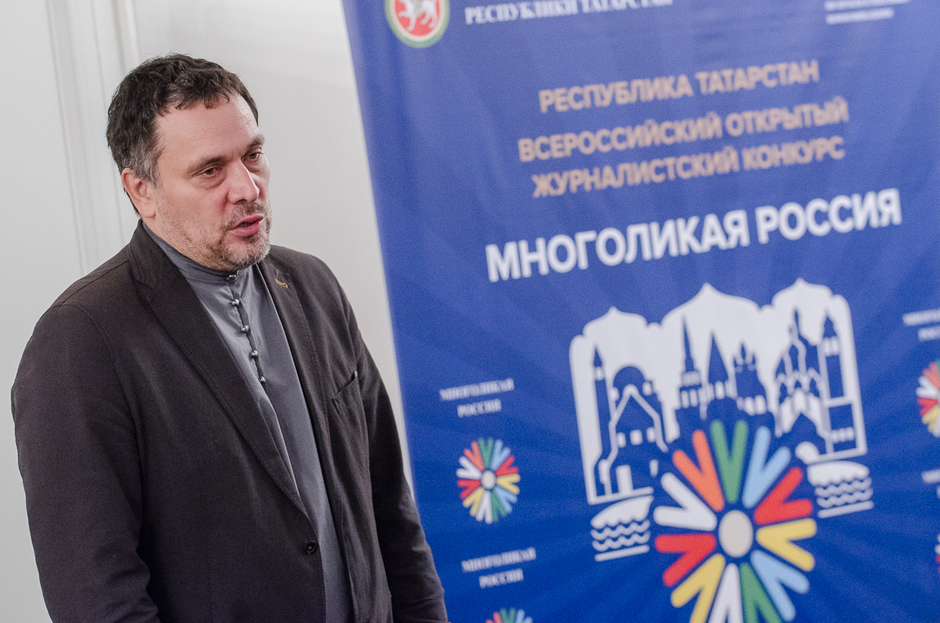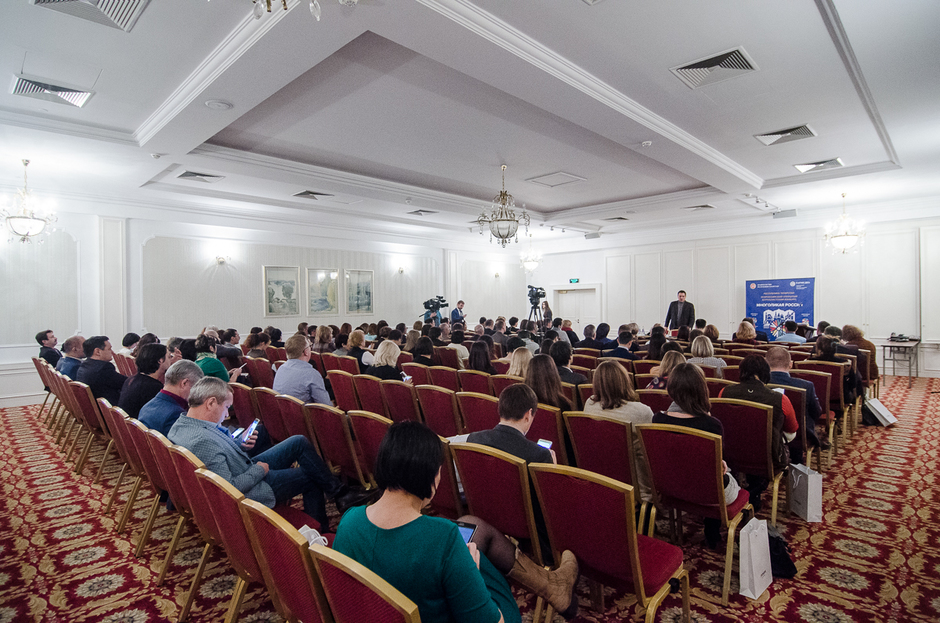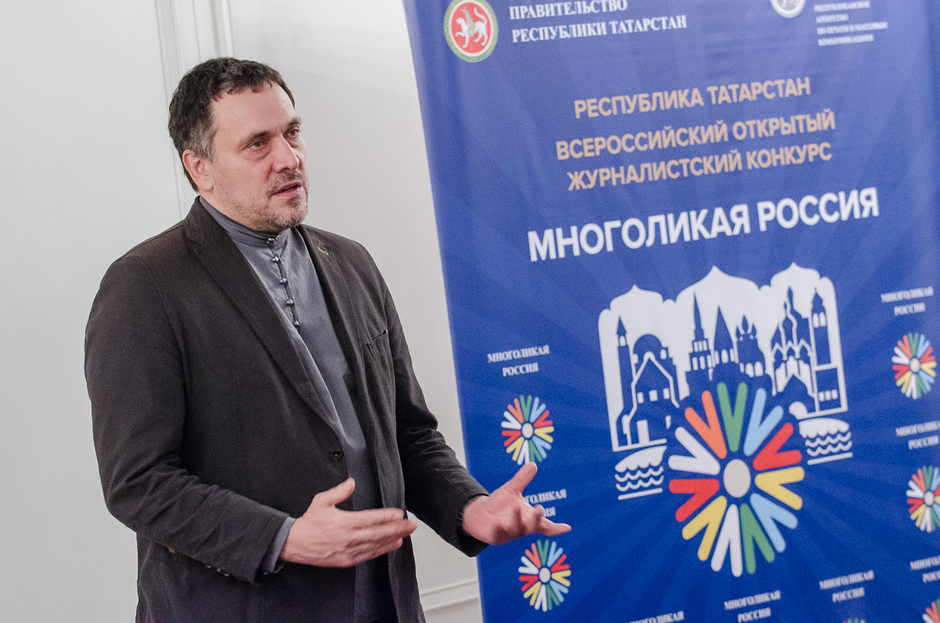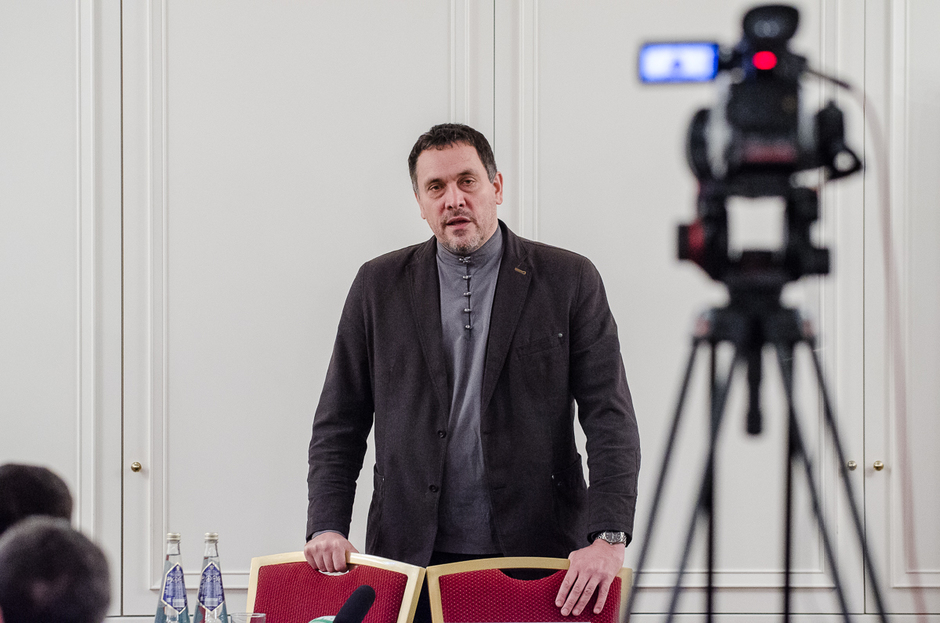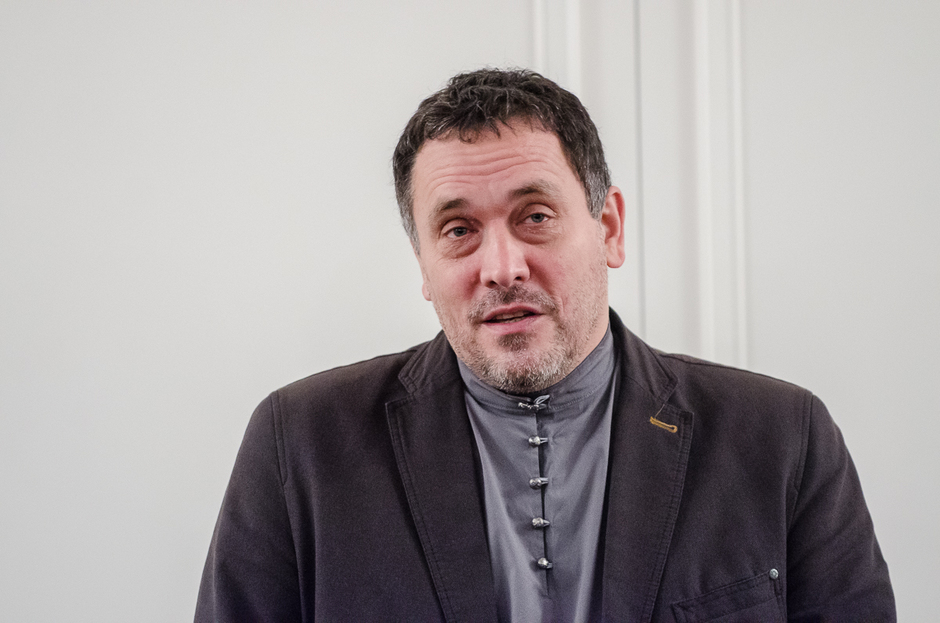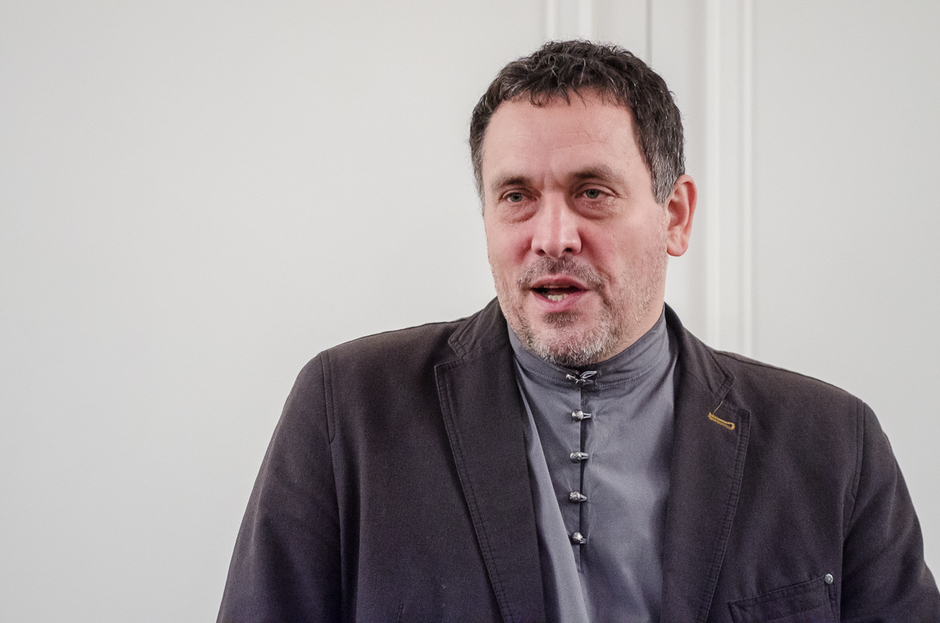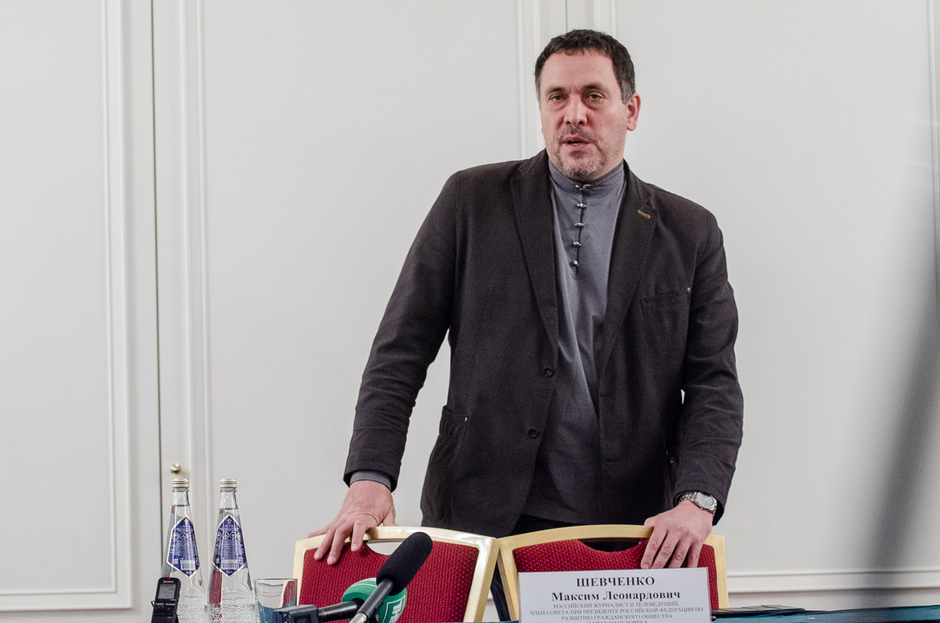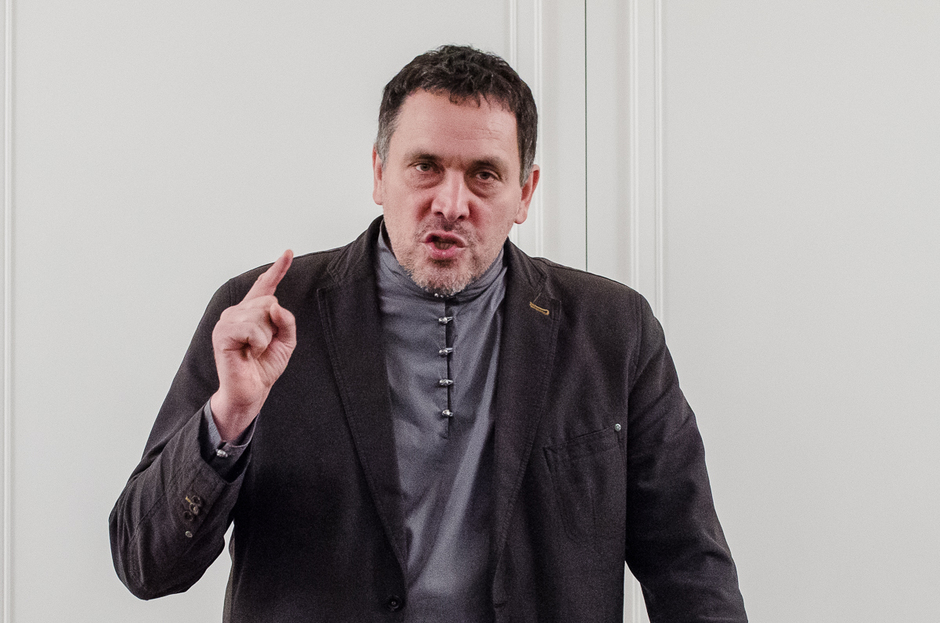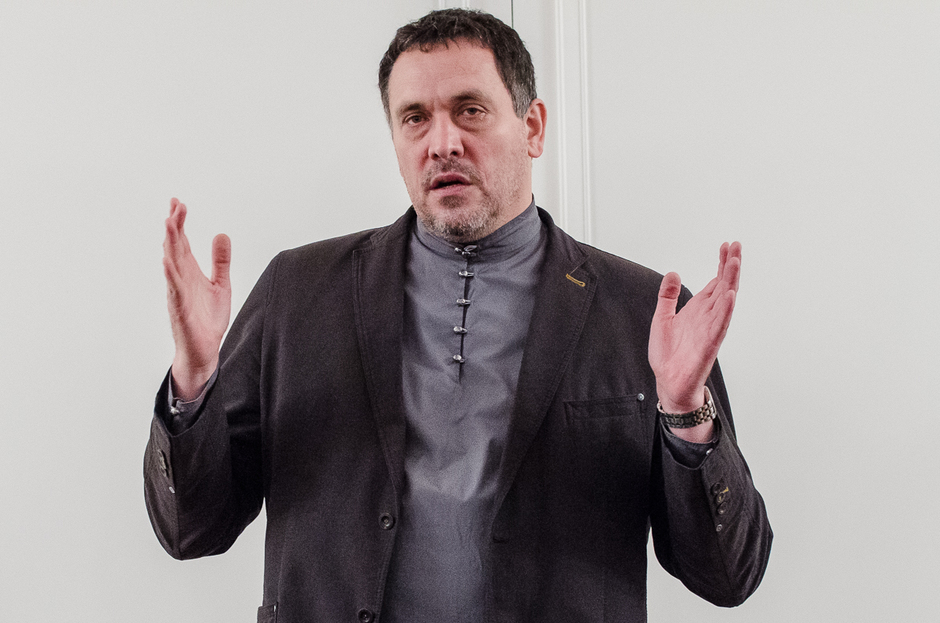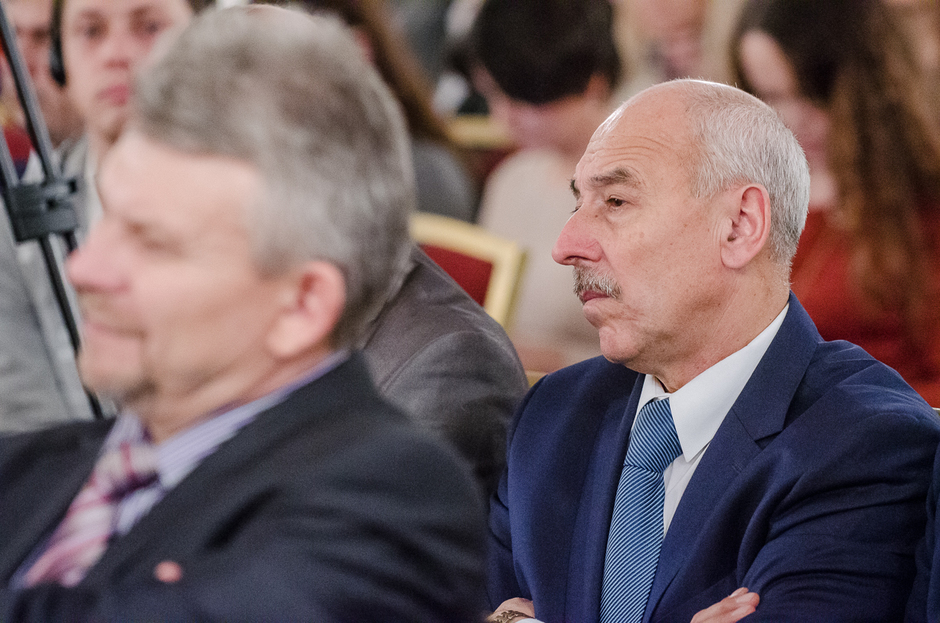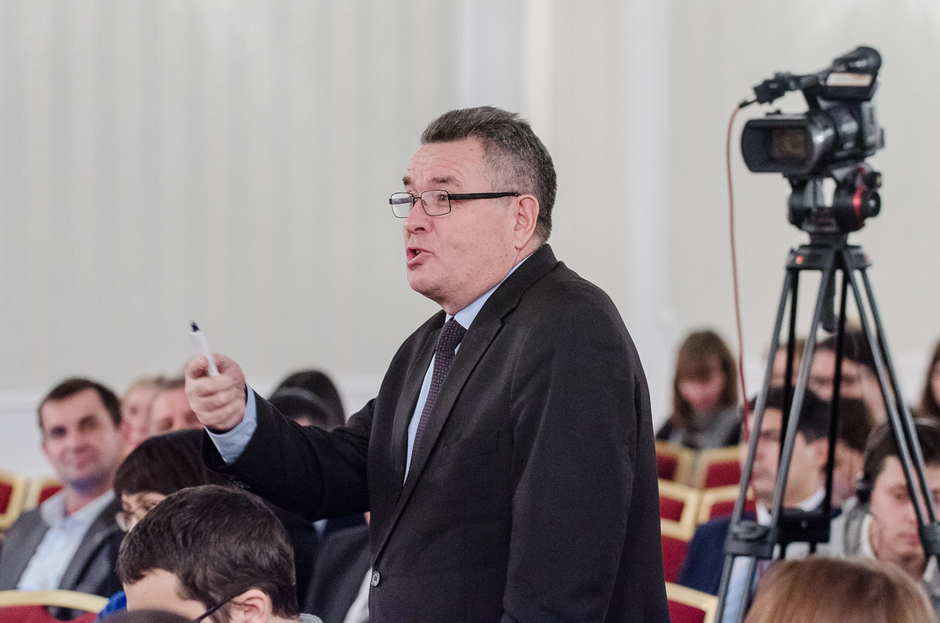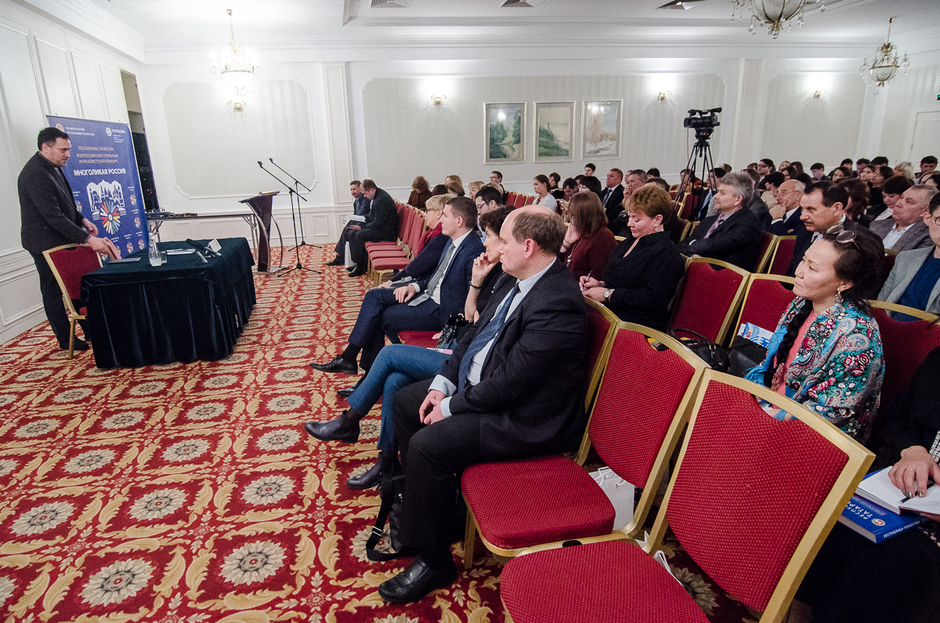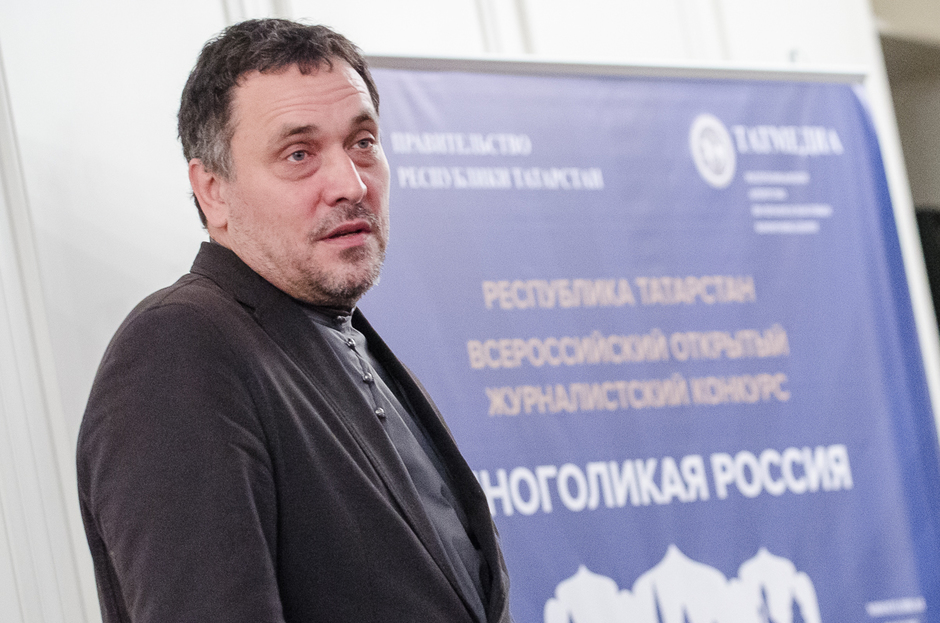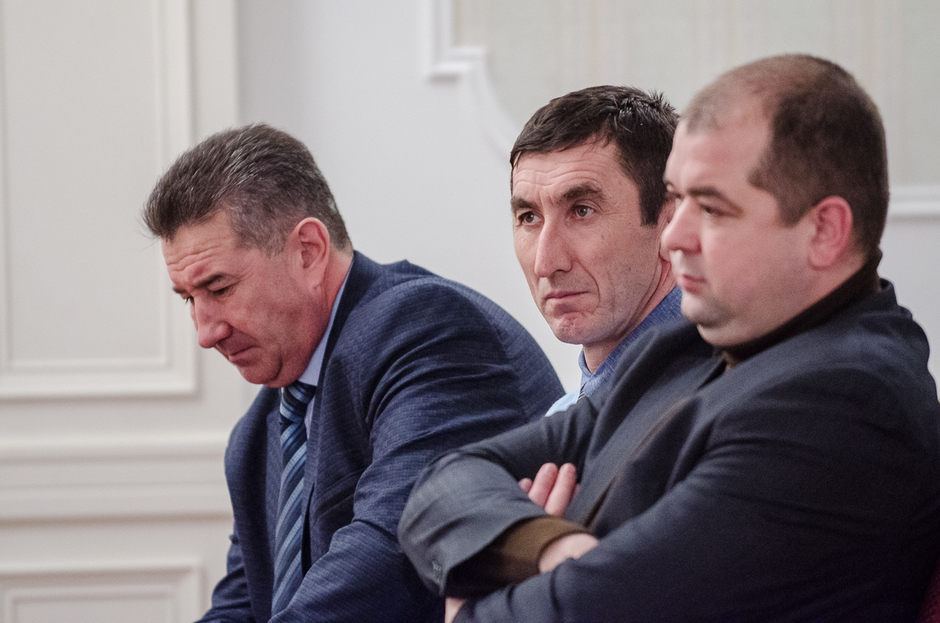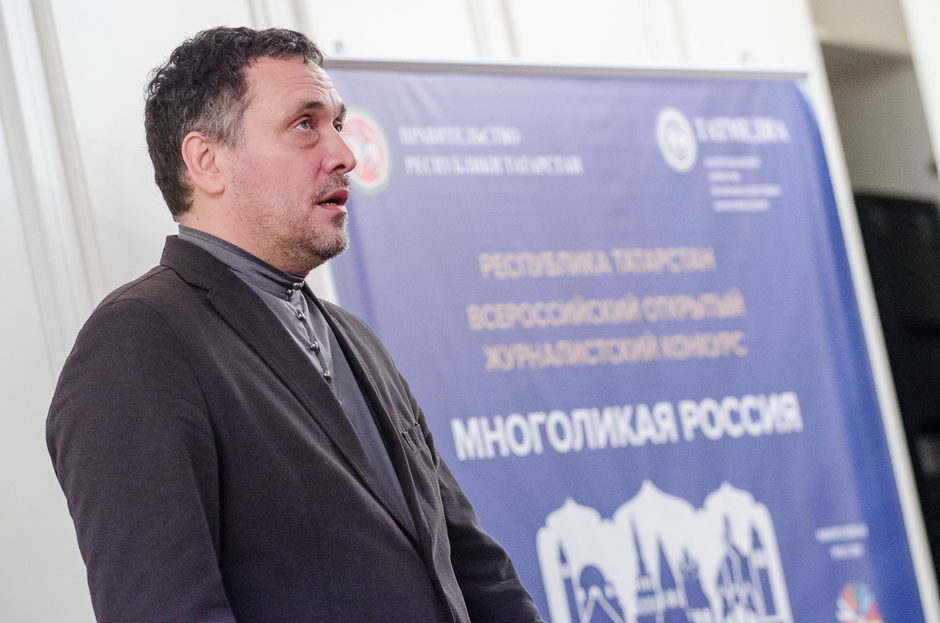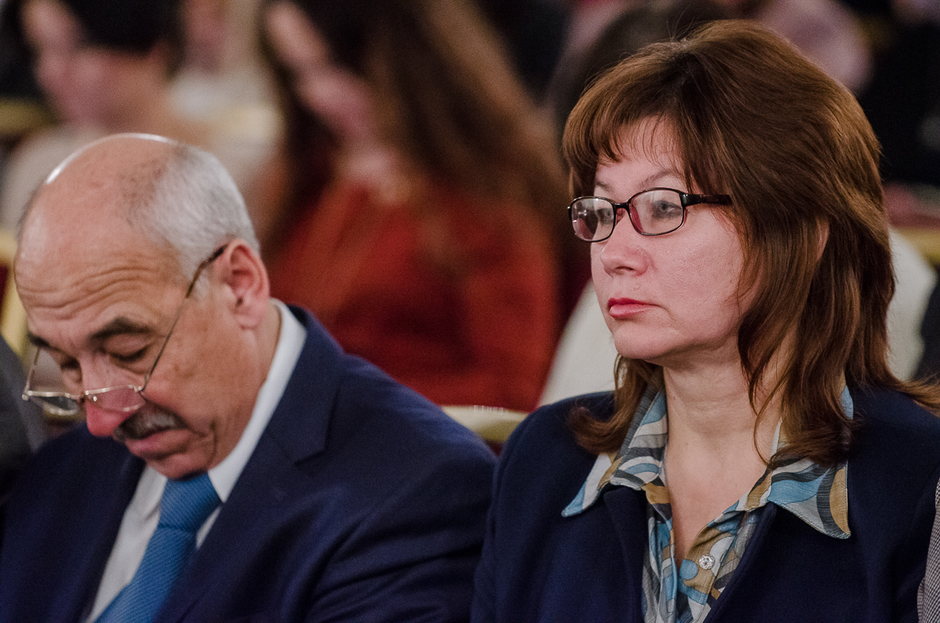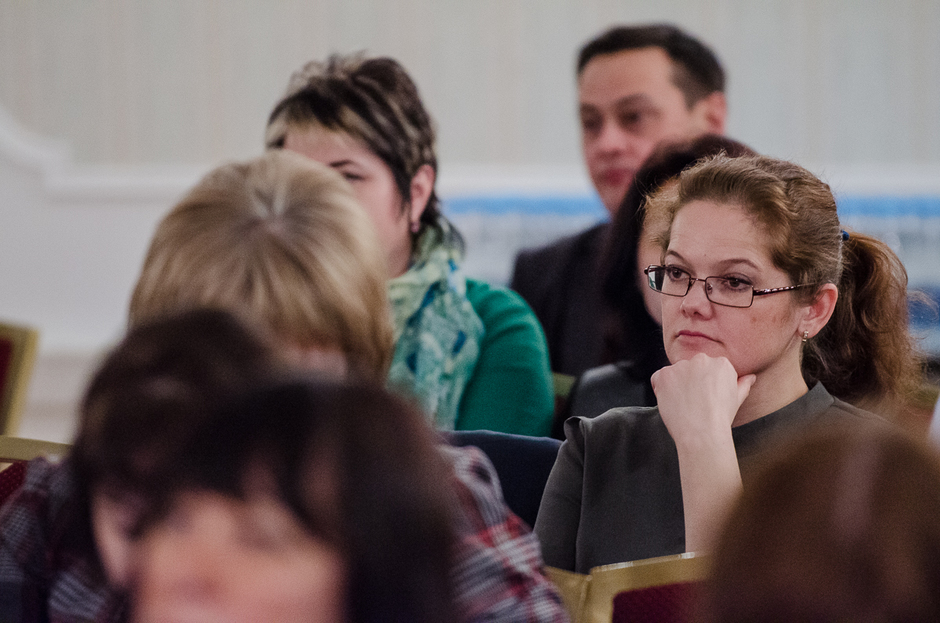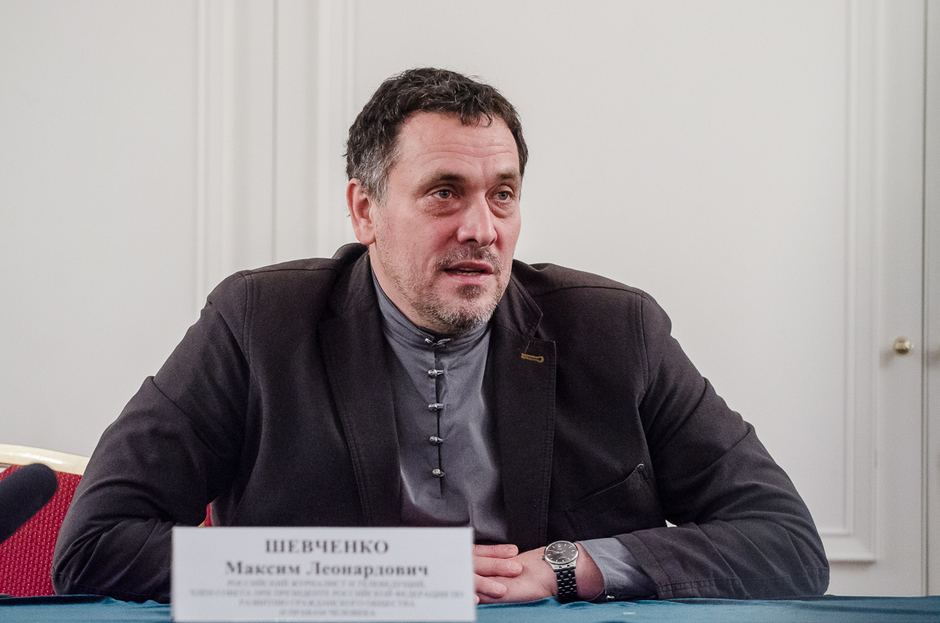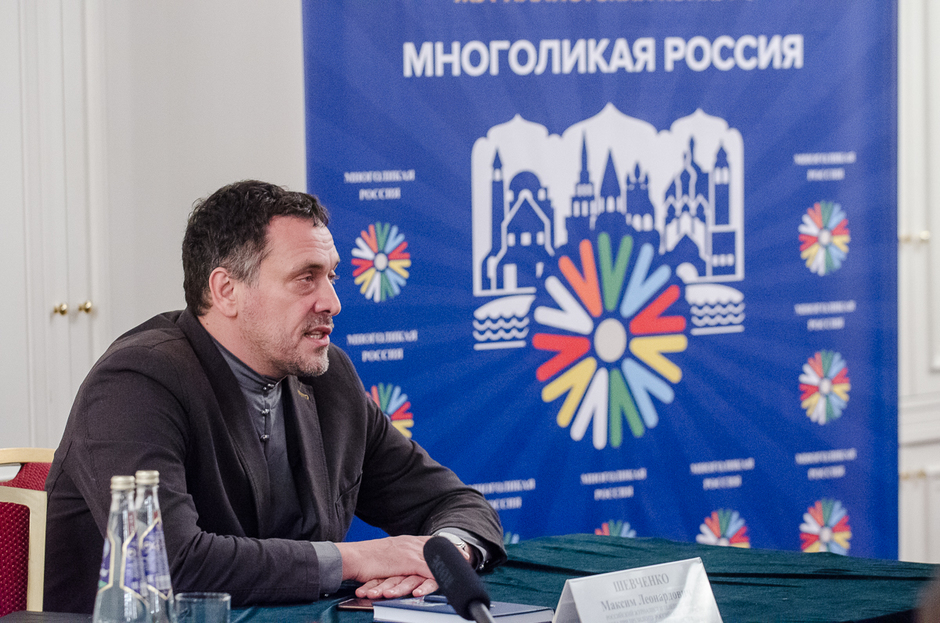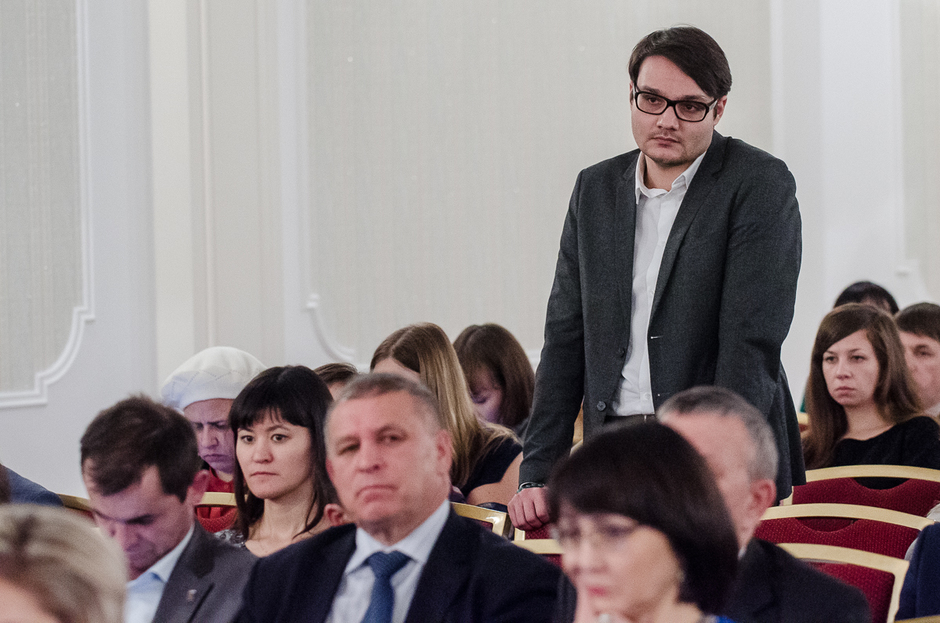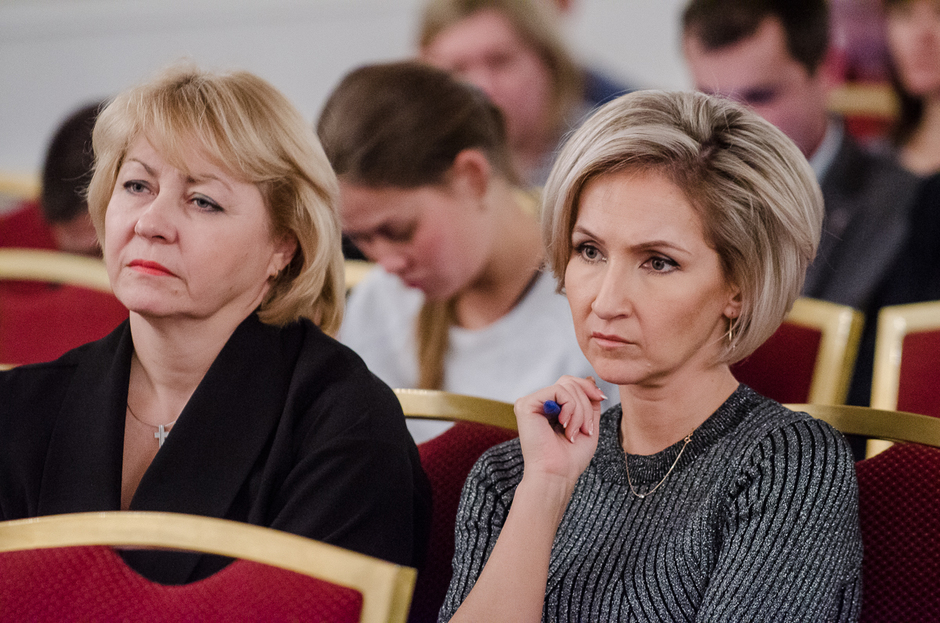Maksim Shevchenko about Tatarstan: ‘I think that we should not kill the goose that lays the golden eggs’
The famous journalist about the interaction of religion with the state and a phenomenon of nature called ‘Donald Trump’
A journalist, member of President's Council of Russia on development of civil society and human rights Maksim Shevchenko has recently visited Kazan. Talking to Tatarstan journalists in free format, he told why Trump is a natural phenomenon, if we should follow the example of Turkey, and how to solve the national question in our country. Read more in the article of Realnoe Vremya.
'On the night of the coup, the Turks proved that they are a real nation'
A member of President's Council of Russia on development of civil society and human rights Maksim Shevchenko has recently conducted a seminar within the framework of the contest for journalists 'Many-sided Russia' from Tatmedia. The journalist and public person began the meeting with a one-minute silence in memory of all journalists killed while performing their work.
The seminar was held in question-answer format and the first question was about the term 'Russian nation', the need of introduction of which has been emphasized by the president of Russia, as well as contradictions that entail inter-ethnic relations, and goals, which in this case are pursued by the government. Maksim Shevchenko began to answer this question very carefully, noting that it is better to ask the authorities themselves what they want. In his opinion, everyone has the right to speak on this subject, but politicians in the State Duma, who publicly support the idea that the law must specify the sovereign role of the Russian people, they are just trying to earn some dubious points, without understanding the consequences.
'I don't understand why blow the fire where you can avoid doing this. I think that the accentuation in the Russian Constitution of a certain people as dominant one in the Russian Federation in general will lead to destruction of our country. I am a staunch opponent of this,' noted Maksim Shevchenko.
'I am a Russian to the core. I am a supporter of development of the Russian people in all its components and I am ready, as they say, to die for our people, as well as for other fraternal peoples of my country. But I believe that if the Russians or any other people is identified as having more rights than the others, it will be the end of the Federation.'
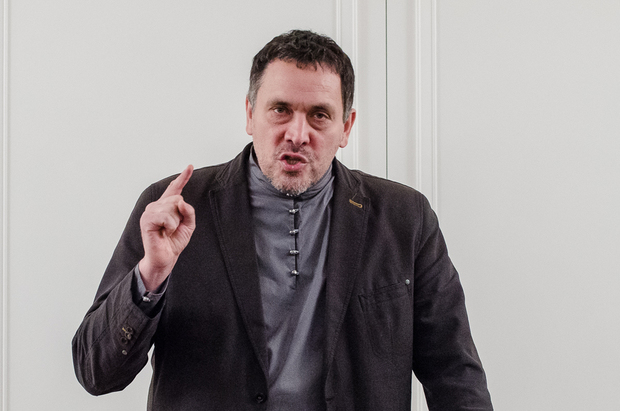
I am a Russian to the core. <...> But I believe that if the Russian people or any other people is identified as having more rights than the others, it will be the end of the Federation.
The journalist promised to deal with it the intellectual way, and if it is needed — political. He also spoke about the other extreme: that a nationality makes no matter and everything should be left to the state. Shevchenko also does not agree with this statement because this, in his opinion, will lead to discontent of the national intelligentsia.
The solution — to go the way of the 1990s, which, despite all the tragic circumstances, has given reasonable Constitution. In his opinion, the law of the nation must be a statement similar to the Declaration of Independence in the US. The speaker cited Turkey as an example of a country similar to which he would like to see Russia. At the time of weakening of the power, people in Turkey 'take their destiny in their hands'.
'For example the Turks, in my opinion, on the night of the coup they proved that they are a real nation. No one knew where the president was — flying between heaven and earth, the rebels were bombing the Parliament and shooting people in the streets. Some generals announced that they were now the bosses. The Turkish people in Istanbul and Ankara took to the streets and fell under the tanks not because someone told or ordered to, but because over the years since the overthrow of the last military junta, you can see how things have changed in Turkey? The Turks from defeated, dejected people as I remember them in 1992 have developed into a modern, democratic, educated people with a developed system of secondary and higher education, great roads, modern cities with a strong economy,' said Shevchenko.
According to him, he also would like to see in Russia such political nation that would respect the rights and freedoms and cherished the country but not leadership, whom they want to please. A nation, in his understanding, it is something that can make their own terms to power.
Tatarstan is the goose that lays the golden eggs
There was a question about federal relations and the preservation of national identity in particular.
'I think that the treaty between Moscow and Tatarstan is the foundation of federal relations in our country. This treaty is certainly needed to be preserved and protected because Tatarstan has also achieved great success over the years due to this treaty, and, indeed, our country. Due to the fact that many conflict situations were resolved at contract level, Tatarstan is not just the forge of the military-industrial complex but also economically one of the most powerful regions of our country, ensuring the development not only of the peoples of Tatarstan but of all peoples of the Russian Federation.'
Shevchenko called for the extension of the federal treaty 'with the preservation of all the nuances that exist up to the post of President of the Republic of Tatarstan: 'I think that we should not kill the goose that lays the golden eggs'. To existing arrangements he would add more opportunities for cultural development to the subjects of the Russian Federation. The journalist called the Tatar language a language with a high level of technological development.
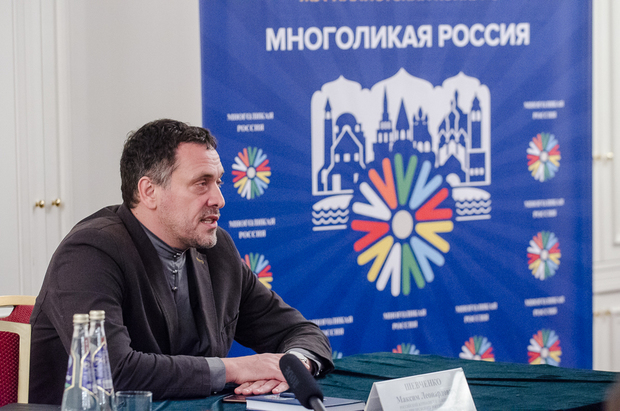
I think that Trump should be regarded as a phenomenon of nature. When the wind is blowing and you are at sea and you have a sailing ship — you will roll over and die. But if you are ready to set the sails, we will sail fast
Trump is like a natural phenomenon
Answering the question of Realnoe Vremya, Shevchenko commented on the opinion that Donald Trump is allied with Russia and his victory in the presidential election in the US will allow to repair the relations between the two countries.
Having listed some of the manifestos of Trump relating to Ukraine, the recognition of Crimea and the truce with Putin, the speaker suggested that this could be just an election rhetoric because the Americans are simply tired of confrontation with Russia and they do not understand why 'the annexation of Crimea should embroil America with the power that has 1,800 nuclear warheads'. According to him, Trump openly said this during the debates with Hillary Clinton.
'So I think that Trump should be regarded as a phenomenon of nature. When the wind is blowing and you are at sea and you have a sailing ship — you will roll over and die. But if you are ready to set the sails, we will sail fast. Trump should be taken a similar way. A phenomenon of nature. You should just hear, see, understand and be guided by your own interests and not trying to please Trump or anyone else,' says Shevchenko.
He once again noted that the ruling elite in Russia in the first place should protect the Russian nation and not to pursue someone else's interests.
'Jesus Christ Superstar was closed not by the Church but the officials'
The journalists were also interested in the opinion of Shevchenko on the current relationship between state and religion in contemporary Russian society.
'To be honest, I think that religion is separated from the state in the Russian Federation. Of course, individual public officials or figures, based on their understanding of life, world and cultural experience, of course, support a particular religion in their region, and I think that is absolutely fine,' said the speaker.
Thus, according to Shevchenko, in Russia there is no imposition of a religion. On the remark of the correspondent of Realnoe Vremya about the fact that, for example, in Omsk the rock opera Jesus Christ Superstar was banned to show, the journalist noted that 'the performance was closed not by the Church but the officials', and on the fact that it was closed after the complaints from the Orthodox believers, who regarded the play as insulting the feelings of believers, he replied that they have the right to complain, to love or not to love some things.
'It was closed not by the Moscow Patriarchate, it was closed by the officials who, wishing to conform to a particular trend, decided to be hyperOrthodox,' said Shevchenko.
The speaker is sure that now there is a demand for a conservative ethic, however, different groups coexist in the society, therefore, the government should regulate the relationship between them. He also advocated against the closure of performances and ban of books. 'I am opposed to this. If you do not want, do not look, do not go,' said the invited guest.
